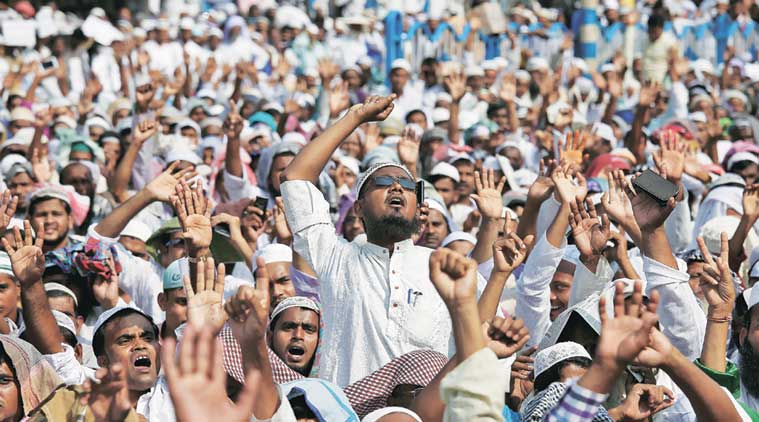In the current scenario, a pertinent question has been raised on what is the concept for minorities in India, and whether it holds any relevance at all. For a country as diverse as India, it is quite ridiculous to think that the word ‘minority’ would have a rigid definition. There are various interpretations to the word minority when spoken in the Indian context, none of which, however, define with accuracy as to who or what can be termed as ‘minority’ in India.
If we go ahead strictly by the standard definition, ethnicities in India like the Sikhs, Buddhists, Jews, Christians actually qualify to be the minorities. The Supreme Court in its decision in the TMA PAI Foundation and Others vs the State of Karnataka said, “a minority whether linguistic or religious is determinable only by reference to demography of the State and not by taking into consideration the population of a country as a whole.” Similarly, in a case dating back to 1971, the Supreme Court held that even though Hindus were a majority in India, they could be treated as a minority in states like Punjab.
However, if we adhere to these very definitions, the Muslims, otherwise deemed as the minorities in India, would not qualify as the minorities. In many states of India, like Jammu & Kashmir, West Bengal, Kerala, Assam, etc., there are many regions where Muslims are certainly not in minority.
So the question still persists, who or what in India is exactly a minority?
The National Commission of Minorities Act passed in 1992, defined Muslims, Christians, Sikhs, Buddhists, Zoroastrians (Parsis) as minorities in the country. Jains were added to this list in 2014. Thus, nearly 20% of the population of India, amounting to some 250 million souls were categorized as minorities. However, when people talk about minorities, it is only the Muslims who hog the limelight. As such, the definition of a minority that works at the national level is not synchronous with that of the state level.
Also, it is a laughable concept as to how a community, with a population equal to that of many significant countries in the world, is still treated as a minority in India. On the other hand, Christians, who account for 2.3% of the population, Sikhs who constitute 1.72% of the population, Buddhists and Jains, who constitute 0.70 and 0.37% of the population respectively, struggle to be identified as minorities in the popular imagination.
As such, the concept of minorities must be reviewed, and subsequently, the status of a minority in terms of Muslims should be revoked as soon as possible.
Likewise, apart from removing the minority status from the Muslims, one must also relook into the relevance of the Ministry of Minority Affairs. Formed on the recommendations of the National Commission of Minorities Act as passed in 1992, the Ministry of Minority Affairs was established in 2006, with ex-Maharashtra CM A R Antulay taking charge as the first Minister of Minority Affairs. However, on a curious note, none of the Minority Affairs Ministers till date have been non-Muslim, from other communities identified constitutionally as minorities. Since the conception of the Ministry of Minority affairs, it has been consistently awarded to the so-called ‘Muslim face’ of the ruling party or alliance. This is in direct contrast to the very objective of the Ministry of Minority Affairs as it should be engaging with the real minority communities and does not become the tool for seeking the votes of the second largest majority community.
Another thing that the Ministry of Minority Affairs has been accused of is promoting the scourge of identity politics. It reinforces that there is no unity amongst the Indians, and seeks to deepen these differences through preferential treatments of one community over others based on the sole criteria of identity. Is this any better than the concept of separate electorates? Besides, in a country, which according to the Preamble of our Constitution, “is a Sovereign Secular Democratic Republic”, how does the concept of the majority or minority exist? Aren’t all Indians supposed to be treated as one and equal? If we’re secular, why do we need the Ministry of Minority Affairs?
It is rather a time that we act hard in terms of reviewing the status of minorities, and dismantle the Ministry of Minority Affairs if we really believe in a secular India. Unless and until we take such steps, the road to a secular India is far from easy.
